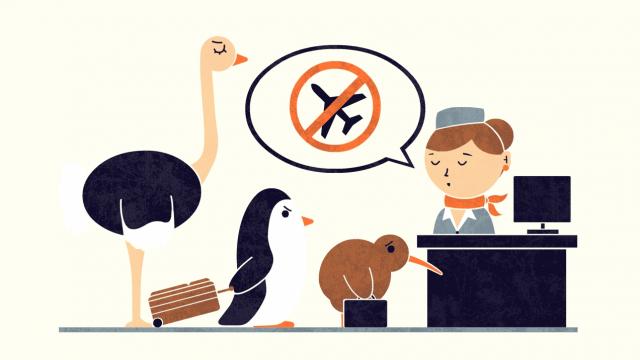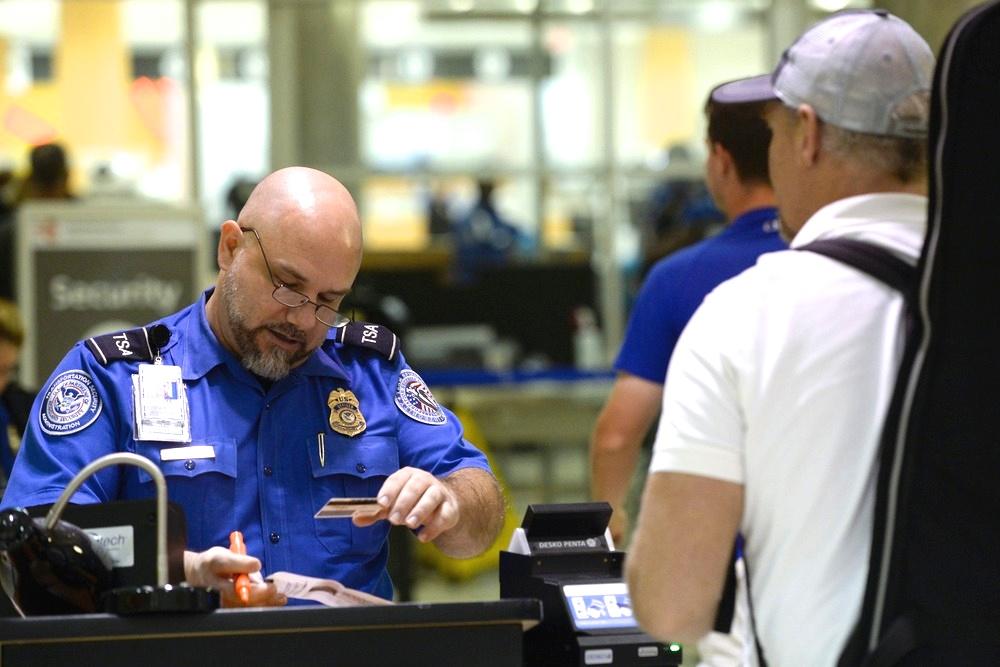
Naveed Shinwari hasn’t seen his wife in 26 months. He suspects it’s because he refused to become an informant for the FBI.
In February 2012 Shinwari, who has lived in the US since he was 14, flew to Afghanistan to get married. He says that before he could get home to Omaha, Nebraska, he was twice detained and questioned by FBI agents who wanted to know if he knew anything about national security threats. A third FBI visit followed when he got home.
The following month, after Shinwari bought another plane ticket for a temporary job in Connecticut, he couldn’t get a boarding pass. Police told him he had been placed on the U.S. no-fly list, although he had never in his life been accused of breaking any law. Another FBI visit soon followed, with agents wanting to know about the “local Omaha community, did I know anyone who’s a threat,” he says.
“I’m just very frustrated, [and I said] what can I do to clear my name?” recalls Shinwari, 30. “And that’s where it was mentioned to me: you help us, we help you. We know you don’t have a job; we’ll give you money.”
Shinwari is one of four American Muslims in a new lawsuit who accuse the FBI of placing them on the no-fly list, either to intimidate them into becoming informants or to retaliate against them for declining.
Filed on Tuesday night in the U.S. district court for the southern district of New York, the case accuses the U.S. attorney general, Eric Holder, the FBI director, James Comey, the homeland security secretary, Jeh Johnson, and two dozen FBI agents of creating an atmosphere in which Muslims who are not accused of wrongdoing are forbidden from flying, apparently as leverage to get them snitching on their communities.
Their lawsuit seeks not only the plaintiffs’ removal from the no-fly list but also the establishment of a more robust legal mechanism to contest placement upon it.
“This policy and set of practices by the FBI is part of a much broader set of policies that reflect overpolicing in Muslim-American communities,” said Diala Shamas, one of the lawyers for the four plaintiffs.
In recent years Muslim community leaders in the U.S. have stated that they feel law enforcement at times considers them a target, particularly thanks to mosque infiltrations and other surveillance practices. Material demonizing Muslims and Islam has been present in FBI counter-terrorism training, which the bureau has conceded was inappropriate.
The New York police department recently shut down a unit tasked with spying on Muslim businesses, mosques and community centers in New York and New Jersey.
Like his co-plaintiffs Shinwari does not know for sure that the FBI deliberately placed him on the no-fly list as either a punitive measure or a pressure tactic.
Their four stories differ in important respects.
Jameel Algibhah of the Bronx alleges that the FBI explicitly asked him to infiltrate a Queens mosque and pose as an extremist in online forums. But they have in common an allegation of an implied quid pro quo. “We’re the only ones who can take you off the list,” an unnamed FBI agent who wanted Algibhah to inform to is alleged to have told him.
Their case follows at least one other, brought by the ACLU in Oregon, that alleges the FBI attempted to leverage no-fly selectees into informants. That case also challenges as insufficient the process afforded to people seeking to remove themselves from the list.
Shinwari, who now lives in Connecticut and works for a temp agency, has not attempted to return to Afghanistan to see his wife. While he was able to board a flight last month, he wonders if he received a reprieve from the no-fly list that the FBI offered to him in 2012 as enticement. Repeated attempts to formally remove himself from the list resulted in vague and inconclusive notifications from the government – which he, his co-plaintiffs and his lawyers contend feeds into the problem.
The no-fly list is among the most opaque post-9/11 measures. It is maintained by the FBI and implemented at airports by the Department of Homeland Security. Few know they’ve been placed on it, and those who do face a complicated redress process to have themselves removed. The new lawsuit alleges that the opacity contributes to watchlist abuse.
According to the FBI’s Terrorist Screening Center, which maintains the list, there were approximately 16,000 people, fewer than 500 of them Americans, on the no-fly list as of September 2011.
A larger pool of data that feeds the no-fly list and other government watchlists, known as the Terrorist Screening Database, contemporaneously contained records of 420,000 people. Famously it included Nelson Mandela until 2008. The government’s policy is to not to confirm or deny someone’s placement upon a watchlist.
Several earlier lawsuits have attempted to get people off the no-fly list. In February Rahinah Ibrahim became the first since 9/11 to win such a case, after demonstrating that the FBI adder her name by mistake. She had been unable to fly since 2004.
The criteria for inclusion on the list are unclear. In a March 2011 federal court filing Christopher Piehota, the current director of the Terrorist Screening Center, affirmed that FBI agents could nominate candidates to it.
Inclusion on the broader Terrorist Screening Database depends upon “whether there is reasonable suspicion to believe that a person is a known or suspected terrorist”, Piehota, then the deputy director of the Terrorist Screening Center, told the eastern district court of Virginia.
“Mere guesses or ‘hunches,’ or the reporting of suspicious activity alone is not enough to constitute a reasonable suspicion and are not sufficient bases to watchlist an individual.” Audits and other quality control measures were periodic, Piehota told the court.
An ACLU study last month challenged that criterion. “It is not at all clear what separates a reasonable-suspicion-based-on-a-reasonable-suspicion from a simple hunch,” it said, calling inclusion on a government watchlist a potentially “life-altering” experience.
A redress system for thwarted travelers was operated by the Department of Homeland Security and referred complaints to the FBI, Piehota further affirmed. A subsequent records check determined “whether the complainant’s current status in the TSDB [Terrorist Screening Database] is suitable based on the most current, accurate and thorough information available”.
The process was entirely internal, with DHS informing the would-be traveler what the system had determined “without disclosing the traveler’s status in the TSDB”, Piehota said.
A study by the justice department’s inspector general, partially declassified on 25 March, painted a mixed picture of the FBI’s watchlisting processes. “Subjects of closed terrorism investigations were removed from the watchlist when the case was closed,” it found, but it noted the FBI was “not timely in submitting watchlist nomination and removal packages for individuals not under investigation by the FBI”. In such cases it took the FBI a median of 78 days to remove people from the lists.
“Because non-investigative subjects may be retained on the watchlist for an extended period of time, this subset of watchlist practices will continue to grow throughout the years,” the inspector general’s report said.
The FBI declined to comment on the allegations in the new lawsuit, which was filed by the Center for Constitutional Rights and the Creating Law Enforcement Accountability & Responsibility project at the City University of New York.
Shinwari said his placement on the no-fly list and his dealings with the FBI had a chilling effect. “I don’t want to open up to people any more, or express myself politically or otherwise. It’s definitely had an effect on me participating in my local mosque,” he said.
“I just want to see some changes to this process, and openness and transparency would be good. That’s what Obama originally ran for."
Originally published by The Guardian

3 WAYS TO SHOW YOUR SUPPORT
- Log in to post comments











